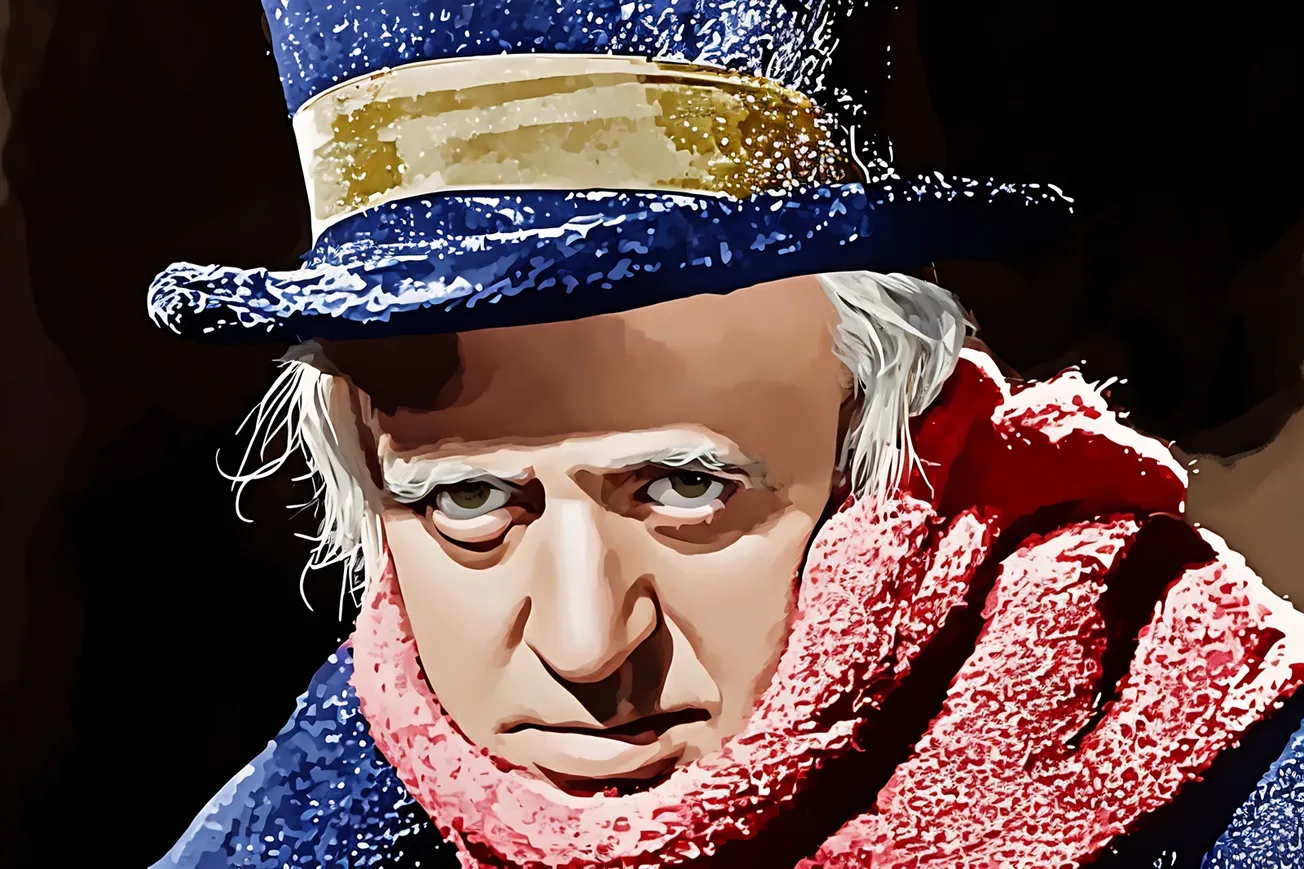Table of Contents
“The West,” as Gavin McInnes says. “Is the best.”
That statement might trigger the wokesters, but, on almost any measure you can think of, it’s true. Human rights? A Western invention, dating back to at least John Locke. Women’s rights? Ditto. Gay rights? Tick, also. Science? Also a Western invention – one, in fact, which could only have emerged in the West.
Even the ideology most hell-bent on denigrating and destroying the Western tradition, Marxism, is a Western invention.
That is why, in a wiser age, it was taken as a given that to be a cultured, indeed civilised human, one had to be familiar with the Western Canon: that corpus of Great Books that once constituted the gold standard of education.
But what is the Western Canon? C. S. Lewis, in his Experiment in Criticism, provided a handy list. Experiment itself is a relatively short work, but Lewis covers a vast range of references to the Western Canon.
Of course, Lewis was one of the most widely-read people in history. “I am the product,” he wrote. “Of endless books…books in the study, books in the drawing-room, books in the cloakroom, books (two deep) in the great bookcase on the landing, books in a bedroom, books piled as high as my shoulder in the cistern attic”. Few of us could ever hope to be as well-read as Lewis. Nonetheless, a list compiled from Experiment gives us a good idea of what to aspire to. As one commenter on Experiment notes, “most of the critics reading Lewis’ Experiment in the 1960s won’t have read all these books and poems, but they will have read many of them and have a passing knowledge of the rest”.
I’ll confess that I’ve read only a fraction of them myself, but at least I know what to look for next at the library or on Amazon.
Happy reading!
Homer: Iliad (c. 8th BCE), Odyssey (c. 8th BCE)
Unknown: Book of Jonah (8th-4th BCE)
Pindar: Olympian Odes (early 5th BCE), Pythian Odes (early 5th BCE), Fragments (early 5th BCE)
Aeschylus: The Eumenides (5th BCE)
Sophocles: Oedipus Rex (c. 429 BCE)
Aristotle: Poetics (335 BCE)
Virgil: The Georgics (29 BCE), The Aeneid (29-19 BCE)
Lucian: Vera Historia (2nd)
Apuleius: Metamorphoses/The Golden Ass (late 2nd)
Unknown: Beowulf (8th-11th)
Unknown: The Song of Roland (11th-12th)
La?amon: Brut (c. 1190-1215)
Unknown: Huon of Bordeaux (c. 1216-1268)
Snorri Sturluson: The Prose Edda (early 13th)
Dante: Divine Comedy (1308-20)
Geoffrey Chaucer: The Canterbury Tales (late 14th), Troilus and Criseyde (1380s)
Unknown: Sir Gawain and the Green Knight (late 14th)
Sir Thomas Malory: Le Morte Darthur (1485)
Ludovico Ariosto: Orlando Furioso (c. 1516)
Arthur Brooke: The Tragical History of Romeus and Juliet (1562)
Sir Philip Sidney: Arcadia (late 16th)
Edmund Spenser: The Faerie Queene (1590s)
William Shakespeare: Romeo & Juliet (1591-5), Twelfth Night (1601-2), The Winter’s Tale (1611), A Midsummer Night’s Dream (1590-7), Henry V (c. 1599)
John Donne: “The Apparition” (early 17th)
Michael Drayton: “The Shepherds Sirena” (1627)
Thomas Browne: Urn Burial (1658)
Jean Racine: Andromaque (1667), Phèdre (c. 1677)
John Milton: Paradise Lost (1667-74), Samson Agonistes (1671)
Alexander Pope: The Rape of the Lock (1712-4)
Jonathan Swift: Gulliver’s Travels (1726, 1735)
Voltaire: “Micromégas” (1752), Candide (1759)
Samuel Johnson: The History of Rasselas, Prince of Abissinia (1759)
William Beckford: Vathek, an Arabian Tale (1782)
James Boswell: Life of Johnson (1791)
Samuel Taylor Coleridge: The Rime of the Ancient Mariner (1798)
William Wordsworth: “Michael” (1800), The Excursion (1814)
Jane Austen: Pride & Prejudice (1813)
Walter Scott: Guy Mannering (1815)
Benjamin Constant: Adolphe (1816)
John Keats: “Ode on a Grecian Urn” (1819)
James Hogg, The Private Memoirs and Confessions of a Justified Sinner (1824)
Percy Bysshe Shelley: The Witch of Atlas (1824)
Elias Lönnrot: The Kalevala (1835-49)
Alexandre Dumas: The Count of Monte Cristo (1844)
Charles Dickens: The Pickwick Papers (1836), Great Expectations (1861)
William Makepeace Thackeray: Vanity Fair (1848)
Edward Fitzgerald: Rubaiyat of Omar Khayyam (1859-89)
Anthony Trollope: Barchester Towers (1857)
Leo Tolstoy: War and Peace (1869)
George Eliot: Middlemarch, A Study of Provincial Life (1871-2)
Samuel Butler: Erewhon (1872)
Lewis Carroll: “The Hunting of the Snark” (1874-6)
Fyodor Dostoyevsky: The Brothers Karamazov (1880)
Robert Louis Stevenson: Treasure Island (1883), Strange Case of Dr Jekyll and Mr Hyde (1886)
Edwin Abbott: Flatland: A Romance of Many Dimensions (1884)
John Ruskin: Praeterita (1885)
Henry James: The Turn of the Screw (1898)
H.G. Wells: First Men in the Moon (1901), “The Door in the Wall” (1911)
Beatrix Potter: Tales (1902-1930)
Joseph Conrad: Nostromo (1904)
E.R. Burroughs, Tarzan (1912-1965)
Kenneth Grahame: The Wind in the Willows (1908)
Arnold Bennett: The Old Wives’ Tale (1908)
James Stephens: The Crock of Gold (1912)
D.H. Lawrence: Sons and Lovers (1913)
Gertrude Stein: “Sacred Emily” (1913)
James Branch Cabell: Jurgen, A Comedy of Justice (1919)
Franz Kafka: The Castle (1926)
Mervyn Peake: Titus Groan (1946)
J.R.R. Tolkien: Lord of the Rings (1954-5)
Lewis also mentions many authors by name – “people one simply knows”.
Homer (c. 9th BCE), Aristotle (384-322 BCE), Virgil (70-19 BCE), Lucretius (c. 99-55 BC), Ovid (c. 43 BCE-18 CE), St. Paul (c. 5-66 CE), Horace (65-8 BCE), Dante (c. 1265-1321), Chaucer (c. 1343-1400), Malory (c. 1415-1471), Pierre de Ronsard (1524-1585), Montaigne (1533-1592), Tasso (1544-1595), Edmund Spenser (1552-1599), Sir Phillip Sidney (1554-1586), Donne (1572-1631), Rabelais (c. 1483-1553), Natalis Comes (1520-1582), Marlowe (1564-1593), Shakespeare (1564-1616), Milton (1608-1674), Dryden (1631-1700), Alexander Pope (1688-1744), Dr. Johnson (1709-1784), Ossian (=James MacPherson) (1736-1796), Wordsworth (1770-1850), Sir Walter Scott (1771-1832), Samuel Taylor Coleridge (1772-1834), Jane Austen (1775-1817), Charles Lamb (1775-1834), Percy Bysshe Shelley (1792-1822), Thomas Carlyle (1795-1881), Balzac (1799-1850), Tennyson (1809-1892), Dickens (1812-1870), Anthony Trollope (1815-1882), John Ruskin (1819-1900), Matthew Arnold (1822-1888), R.M. Ballantyne (1825-1894), George Meredith (1828-1909), Jules Verne (1829-1905), Walter Pater (1839-1894), Thomas Hardy (1840-1928), Henry James (1843-1916), Gerard Manley Hopkins (1844-1889), Brunetière (1849-1906), Robert Louis Stevenson (1850-1894), Rider Haggard (1856-1925), Joseph Conrad (1857-1924), William Morris (1859-1896), A.E. Housman (1859-1936), Bergson (1859-1941), W.W. Jacobs (1863-1943), Kipling (1865-1936), Walter De La Mare (1873-1956), Gertrude Stein (1874-1946), G.K. Chesterton (1874-1936), Rainer Maria Rilke (1875-1926), Edgar Wallace (1875-1932), E.R. Burroughs (1875-1950), D.H. Lawrence (1885-1930), T.S. Eliot (1888-1965).
If you enjoyed this BFD article please consider sharing it with your friends.









